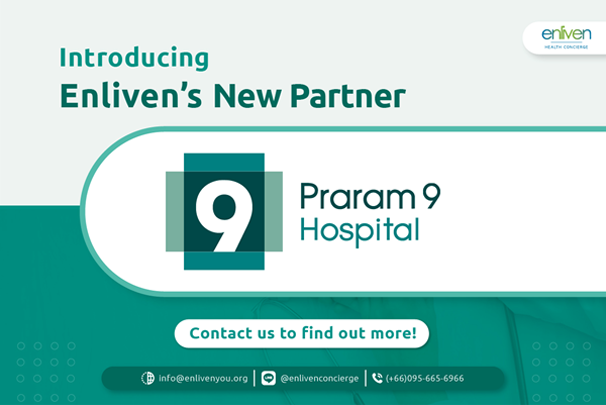
by Admin | Oct 12, 2021 | Uncategorized
– by Pirunrat Nathchayanonth (Yori), Client Coordinator.
Introducing our latest partner situated right in the heart of Bangkok’s new CBD. The revamped Praram 9 hospital is where health and wellness are always in sync.

The hospital is well renowned for the kidney’s transplant program, but the latest advanced technology combined with the best in field of each their own, rest assure that you will always be in the best hands with them through us.
Their wellness center – “Fix & Fit”, one of the largest wellness department this side of town, offers variety of both conventional and holistic approach. At W9 where your wellness goal is customized by specialists to integrate all indoor aqua-therapy, fully equipped gym and icelabtherapy for you to enhance your ability to heal all the while feeling at home.

Give us a shout for more information and for us to arrange an appointment for you with the right specialist for whatever you need. We’re here to help 😊.
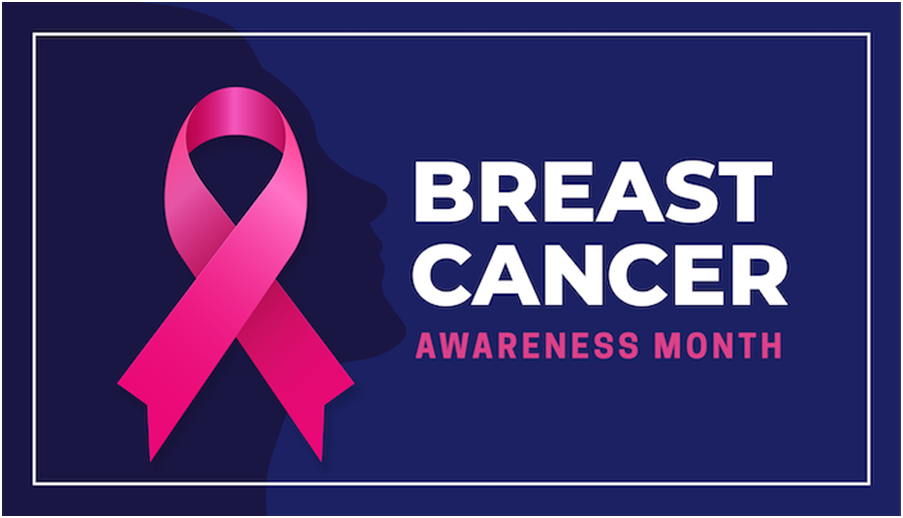
by Admin | Oct 8, 2021 | Uncategorized
– by Pirunrat Nathchayanonth (Yori), Client Coordinator

October is the Breast Cancer Awareness Month and we mostly associate this with women, but did you know that men can get breast cancer too?
“About 1 out of every 100 breast cancers diagnosed in the United States is found in a man.” – CDC (https://www.cdc.gov/cancer/breast/men/index.htm#:~:text=Although%20it%20is%20rare%2C%20men,is%20found%20in%20a%20man.)
Similar to how heart attack is more fatal in ladies, breast cancer is more fatal to men. The most common male breast cancer is one that called Gynecomastia:
“Gynecomastia is a condition of overdevelopment or enlargement of the breast tissue in men or boys. The breasts become larger. They may grow unevenly. Gynecomastia often happens when a preteen or teenage boy is going through the hormonal changes of puberty.” – John Hopkins Medicine (https://www.hopkinsmedicine.org/health/conditions-and-diseases/gynecomastia)
If it’s rare, what causes it? Like most illnesses, obesity and family history are common factors.
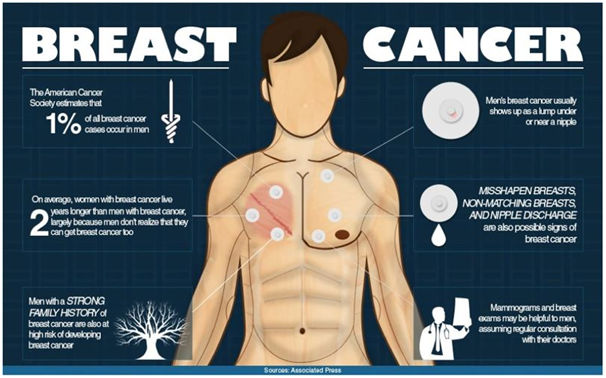
If you suspect that you may be at risk or having breast cancer, some signsand symptoms of male breast cancer to look out for are
• A painless lump or thickening in your breast tissue
• Changes to the skin covering your breast, such as dimpling, puckering, redness or scaling
• Changes to your nipple, such as redness or scaling, or a nipple that begins to turn inward
• Discharge from your nipple
A regular health screening or a genetic screening can help you detect at a very early stage, so that you can plan your treatment accordingly. If you don’t know where to start, contact us and we’ll point you in the right direction!
Reference
https://www.cancer.org/cancer/breast-cancer-in-men/about/what-is-breast-cancer-in-men.html
https://www.mskcc.org/cancer-care/types/breast-male/types
https://www.cancer.org/cancer/breast-cancer-in-men/causes-risks-prevention/risk-factors.html
https://www.mayoclinic.org/diseases-conditions/male-breast-cancer/symptoms-causes/syc-20374740
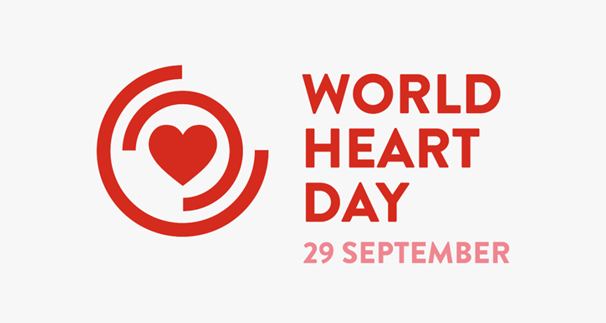
by Admin | Sep 29, 2021 | Uncategorized
– by Pirunrat Nathchayanonth (Yori), Client Coordinator
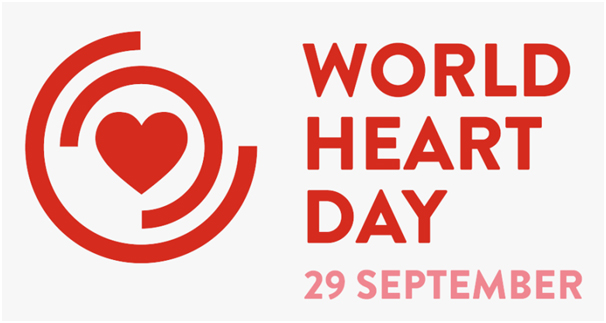
The heart is an organ a size of our own fist located in the middle of your chest slightly to the left is very strong,and also very delicate.
It is strong enough to pump our blood to all other organs and it is delicate enough to feel even the tiniest twinge caused by your emotions. It is one of the most crucial organs that you cannot function without.
When we talk about heart issues, it is not only solely the heart that’s affected but also your blood vessels. In medical terms, it often and almost always means Cardiovascular Diseases (CVD) as a whole. This is because “Your heart is a pump. Together, your heart and blood vessels make up your cardiovascular system, which circulates blood and oxygen around your body.” – Mayo Clinic (https://www.mayoclinic.org/diseases-conditions/heart-disease/multimedia/circulatory-system/vid-20084745)
WHO (https://www.who.int/health-topics/cardiovascular-diseases#tab=tab_1) defines CVD as “the leading cause of death globally, taking an estimated 17.9 million lives each year. CVDs are a group of disorders of the heart and blood vessels and include coronary heart disease, cerebrovascular disease, rheumatic heart disease and other conditions. More than four out of five CVD deaths are due to heart attacks and strokes, and one third of these deaths occur prematurely in people under 70 years of age.”
Interestingly, in many studies women are more prone to CVD than men while men tend to develop it earlier in life when comparing the age group. But the factors contributed are pretty much the same – hypertension, stress, smoking, obesity to mention a few. Majority would think this is normally amans problem but it is proven to be both genders.
There are many types of heart related conditions including but not limited to stroke, heart failure, arrythmia and valve complications.

From the modifiable risk factors shown above, our personal choices can affect our risk of developing a heart condition. The most important way to do so to have a healthy diet and a balanced lifestyle with exercise. Also, it is important to go for your regular check-ups so you know where you stand. If you want to go for a heart check-up let us know, we’re always here to help you!
Reference
https://www.nhs.uk/conditions/cardiovascular-disease/
https://www.who.int/news-room/fact-sheets/detail/cardiovascular-diseases-(cvds)
https://health.clevelandclinic.org/women-men-higher-risk-heart-attack/
https://www.health.harvard.edu/heart-health/gender-matters-heart-disease-risk-in-women
https://nutritionj.biomedcentral.com/articles/10.1186/s12937-020-00659-0
https://www.dignityhealth.org/articles/a-list-of-cardiovascular-diseases-the-5-most-common
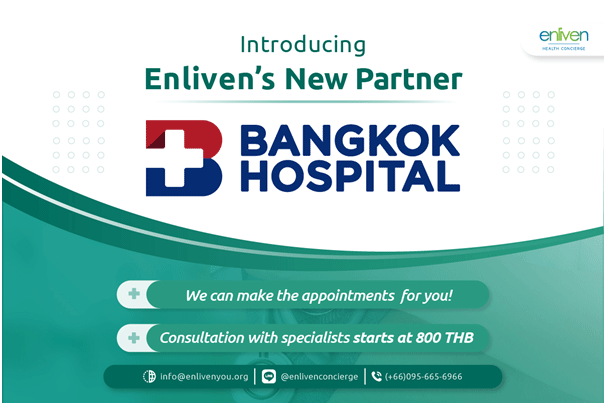
by Admin | Sep 21, 2021 | Uncategorized
– by Pirunrat Nathchayanonth (Yori), Client Coordinator
We are happy to welcome Bangkok Hospital into Enliven’s network and are here to make appointments for you there.

Ranking among top 3 Bangkok’s Best Hospital 2021 (https://www.newsweek.com/best-hospitals-2021/thailand), we are excited offer you access to their range of top specialists including heart doctors, orthopedics, dermatology and skin health, mental health, cancer care and more.
We can also accommodate your PCR test with the Standard 24hour or express service with same day results. And if you are a symptomatic Covid patient, we can secure you a bed there!
Contact us now for an appointment with Bangkok Hospital. We’re here to ensure your seamless medical journey with them 😊

by Admin | Sep 16, 2021 | Uncategorized
– by Pirunrat Nathchayanonth (Yori), Client Coordinator
We don’t hear about anovulation often. All we hear about is menopause and that usually happens in your late 40s, but my very close friend experienced anovulation before she even turned 30.
Anovulation is the lack or absence of ovulation (the release of an egg). It is a common cause of infertility and is often the result of an imbalance of the hormones that cause a woman to ovulate, and maybe part of the condition polycystic ovary syndrome (PCOS).

My friend noticed that her period is irregular, but she didn’t pay much attention to it until she wanted to plan a family after the age of 30. When she went to get her eggs checked the reality hit. She was running out of time. Her egg count was low and if she ever wanted a baby in the future, she would have to freeze her eggs now. Fast forward a few years later and she hasn’t implanted them yet, but they are safe and sound for when she is ready.
But really, can we stop producing eggs?
“At birth, there are approximately 1 million eggs; and by the time of puberty, only about 300,000 remain. Of these, only 300 to 400 will be ovulated during a woman’s reproductive lifetime. Fertility can drop as a woman ages due to decreasing number and quality of the remaining eggs.” – Cleveland Clinic (https://my.clevelandclinic.org/health/articles/9118-female-reproductive-system#:~:text=At%20birth%2C%20there%20are%20approximately,quality%20of%20the%20remaining%20eggs.)
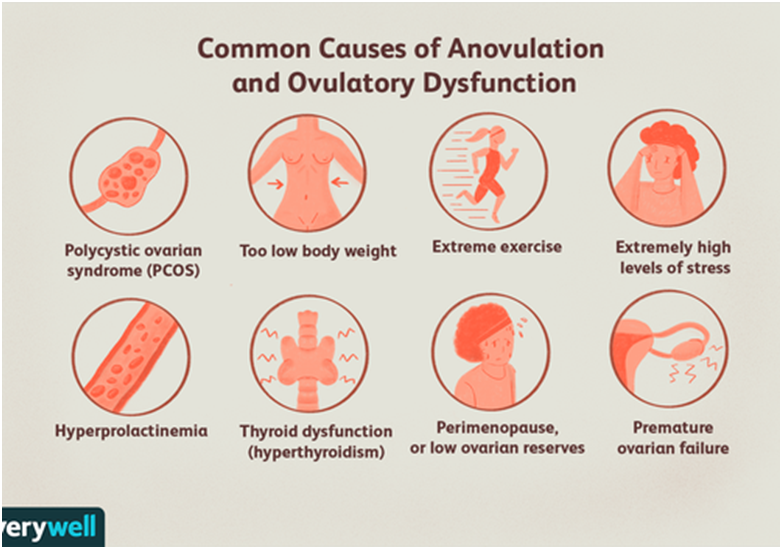
1 million eggs sounds like a lot, so how are we running low so fast? Every month when we have our period, we losean average of 1,000 eggs at a time. But I thought we shed an egg a month? Well, yes, the mature one! The one that “travels through the fallopian tubes to the uterus waiting for to be fertilized by a sperm. – Cleveland Clinic”
Interesting. I never knew about a thousand (immature) eggs. When I first had a discussion with her, I didn’t even believe it myself and she urged me to find out. “But how?,” I asked. She said by going to an OB/GYN and ask for a blood test that will tell you how many eggs do you have left. So easy!
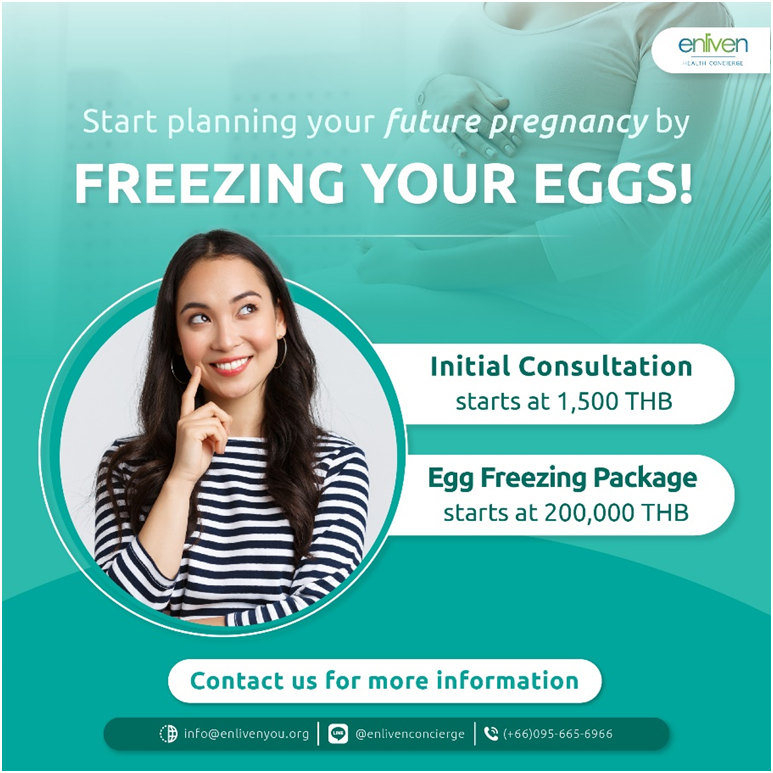
“There are two good ways to measure egg count: an antral follicle count and an AMH (anti-Müllerian hormone) test. During an antral follicle count, a doctor uses ultrasound to count the visible follicles. Each follicle contains an immature egg that could potentially mature and ovulate. This test gives an idea of not only total egg count, but also of how many eggs a woman might be able to freeze during one cycle. This test is most meaningful at the beginning of a woman’s menstrual cycle.
AMH, on the other hand, is a protein hormone produced by special cells inside the follicles. The level of AMH in the blood can help doctors estimate the total number of follicles inside the ovaries, and therefore a woman’s total egg count. Because AMH levels stay basically stable throughout a cycle, the blood test can be performed at any time. A typical AMH level for a fertile woman is 1.0–4.0 ng/ml, but, depending on age, many women will be higher or lower than this range.”– Extend Fertility (https://extendfertility.com/your-fertility-3/egg-count/).
With advanced medical technology, if you plan to have a baby later but fear anovulation will happen to you, don’t worry. We are here to help. We have a range of specialists who can support you from initial consultation and examination to initiating IVF, to egg freezing procedure and stem cells harvesting.
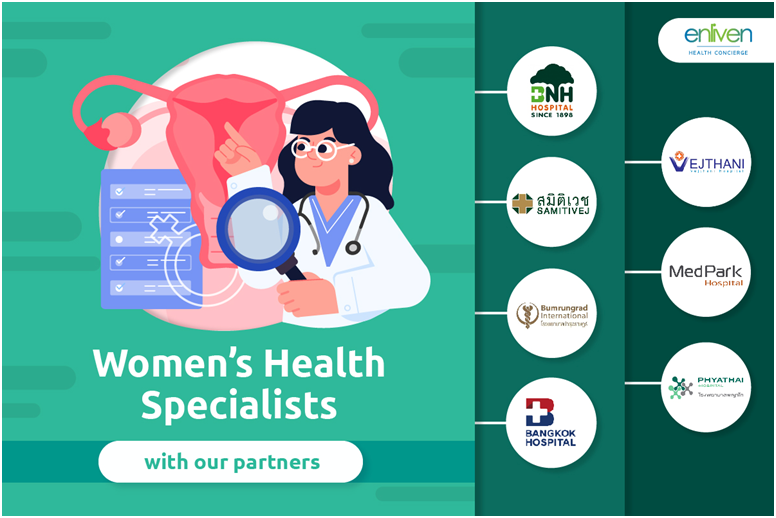
If you are having troubles relating to your delicate area, do not hesitate to reach out. We work with a variety of OB/GYN specialists that can accommodate your needs 😊
Page 3 of 7«12345...»Last »













